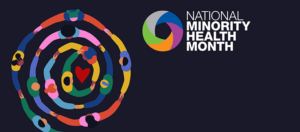
It’s no secret that some racial minorities have higher rates of heart disease, certain types of cancer, and other health problems that can increase after age 50 or so.
Plus, minority communities are often under-represented in the fitness, health and medical fields. And cultural barriers present extra challenges to access and treatment.
So, April has been designated as National Minority Health Month by the US Department of Health and Human Services Office of Minority Health.
“In 1915, Booker T. Washington established National Negro Health Week, which later became National Minority Health Month,” said HHS Secretary Xavier Becerra. “This month-long celebration has evolved into a vital platform for encouraging people to access health care and take other actions to improve their wellbeing.’
The theme for 2024 is “Be the Source for Better Health: Improving Health Outcomes Through Our Cultures, Communities, and Connections.” HHS says it’s about understanding how unique environments, cultures, histories, and circumstances impact overall health of various populations.
Non-medical factors like poverty, limited access to health care, fitness opportunities, proper nutrition, lack of education, and racism contribute to health disparities and inequities. Simply promoting healthy choices won’t do the job, the government says, adding:
“Considering the conditions in the environments where people are born, live, learn, work, play, worship, and age is fundamental to improving health and reducing longstanding disparities affecting racial and ethnic minority and AI/AN populations.”
Visit the National Minority Health Month 2024 website to find resources, social media messages, graphics, and information on how to Be the Source for Better Health.

